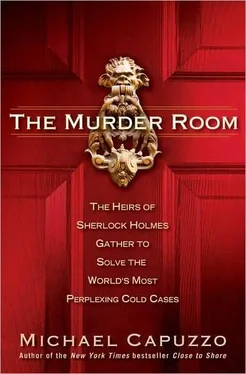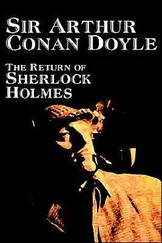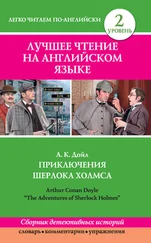“Naturally,” Gill said, “we assumed the killing was tied to her work.” In fact, Berg had recently been threatened in her job as a revenue officer based in Bailey’s Crossroads, Virginia. The threats had seemed serious enough that she received a transfer to the Washington, D.C., office and a less contentious job as program analyst.
But it was a dead end. “We pretty much exhausted the idea that it was job-related. We were reasonably sure it wasn’t anybody in her case files.” Then they found entries in Berg’s diary about a secret boyfriend, unknown to her friends or family. Her secret boyfriend was an FBI supervisor, a married man. Agents got excited when they learned the bullets that killed Berg were of “the same caliber issued by the FBI at the time,” Gill said. “It looked very promising. We went down that alley aggressively.”
FBI internal security gave the potential suspect a polygraph test, but it was inconclusive. Agents also gave polygraph tests to the man’s wife and his son, who was off at college. “It ruined the guy’s life for a while,” Gill said. “Bad luck for him that she maintained a diary.” The FBI supervisor was eliminated as a suspect. Another dead end.
“It’s a very frustrating case,” Gill said. “We had ten good agents in that office and a lot of money to spend. But we couldn’t get anywhere.”
So who killed Heidi Berg?
Richard Walter cleared his throat to speak, and Gill leaned forward. “Everyone seems to think if she’s pretty and young it was sexually driven,” Walter said. “I don’t see evidence for that. The killing is consistent with the angry taxpayer theory-Heidi is just disposed of, thrown away like trash, a killing all about power, which is what money represents. The gun is all power. But if everyone in her case files has been ruled out, the probability is she is a stranger to the killer. She was there and he had the needs and weapon and did her, a variant form of a drive-by shooting.”
The group fell silent. But why kill her? Bender asked. Walter frowned. “He may have tried to put the make on her and she said no, and he didn’t have the ability or testicles to take her down, so he satisfies himself with the gun. It’s also possible that he’s impotent or whatever else and that’s the most he can do, he feels isolated and he wants to take somebody out, and she’s a good-looking girl.”
The thin man smiled coldly. “We don’t like to imagine these fellows out there. They’re the sharks in the harbor. That’s why it’s a high risk to go running alone, to be isolated at six o’clock in the morning in a park, on a pathway-particularly for an attractive girl.”
Gill’s face lost color. He didn’t doubt Walter, but it seemed a tragic, absurd end to Heidi Berg. The questions from the VSMs had seemed relatively weak. Someone had actually asked Gill if he had checked Berg’s phone records. “Of course,” Gill had shot back. What were they accomplishing?
The next month was even more disappointing to Fleisher. On the morning of Tuesday, July 3, 1984, Donna Friedman, thirty-three years old and eight and a half months pregnant, left her two young children with a babysitter and went to her regular obstetrics appointment. Friedman, a doctor’s wife, was due the second week in August. She received great news from her obstetrician, Dr. Robert S. Auerbach. The baby was a “perfectly formed, healthy baby boy,” Dr. Auerbach said. “She was very happy and doing beautifully. She said that she didn’t care whether it was a boy or a girl. She had only wanted it to be healthy. She lived for her other two children so completely.”
Leaving the doctor’s office, Friedman said she had some shopping to do. First Friedman, who was redecorating her suburban Philadelphia home, went to All-in-One Linens to inquire about bedroom curtains. Then it was on to Toys“R”Us to look for a stroller for her brother’s newborn son, a gift for the child’s bris. Unable to find the special stroller, she called her brother at about 1 P.M., and he suggested she go to Cramer’s Juvenile Furniture on Frankford Avenue, which was advertising the stroller. She bought it with a credit card, and asked a clerk to help carry it to the trunk of her car. The store clerk watched her drive away at 3:30 P.M.
When she didn’t return home by 4:15, her husband, hematologist Dr. Alan Friedman, was worried. Donna was always punctual and knew she had to be home to relieve the babysitter for Scott, eight, and Lee, four. The couple also planned to attend a 6 P.M. birthday party for Dr. Friedman’s grandmother at a local restaurant. When his wife didn’t show up for the party, Dr. Friedman called hospitals and the police.
Police began an urgent search for the missing woman. Dr. Friedman spent two days retracing his wife’s steps. At 8:25 P.M., Thursday, police found the family’s 1984 Oldsmobile Cutlass parked on Ogontz Avenue, a few blocks from the Cheltenham Square Mall. Blood was seeping out of the trunk. Friedman and her unborn child were both found dead in the trunk. The young mother had been bludgeoned to death with two blows to the skull, then shot twice in the back of the head, “for good measure,” the police said.
Fleisher choked up listening to Philadelphia Police Department detective Frank Diegel describe the case. Fleisher had grown up not far from the Friedmans. At the funeral service for mother and unborn child, people wept and cried out in anguish. The rabbi had told the story of a man who cried over the death of a loved one.
“Why do you weep?” the man’s friend asked. “Your tears will not bring back your loved one.”
“That is why I weep,” the man replied.
A week after the murders, the Philadelphia Daily News offered $10,000 for information leading to the arrest and conviction “of the person or persons responsible for the murder of Donna Friedman and her unborn child.” Family and friends of the Friedmans offered a separate $10,000 reward. Homicide detective Diegel had a primary suspect, but the police investigation foundered. The money was never collected. No one was ever arrested for the crime.
The Vidocq Society discussion was spirited. The society helped focus and reenergize Diegel on his primary suspect, whom VSMs were convinced had killed the pregnant woman. But in the weeks that followed, Fleisher was deeply frustrated. “We know who did it, but it was never pursued by the police. It was stonewalled, and we don’t know why.”
Fleisher said they were taking on a Sisyphean task if they tried to solve cold murders. Police often interviewed the killer within forty-eight hours of a murder, but if they didn’t recognize him, the case dried up fast. Memories faded. Evidence disappeared. Other cases clamored for attention. Once a case officially went cold, the difficult turned nearly impossible. “There are good reasons a case doesn’t get solved in the first place,” Fleisher said. “You have to deal with those.” It took a highly motivated DA and police department, and often a passionately involved family, to blast a case from the ice. On top of all that, the Vidocq Society lacked police power to arrest and subpoena. Their power was brainpower. “We almost always know who did it,” Fleisher said. “But to find a solution, get an arrest and conviction, the stars would have to be aligned.”
Gill, the high-ranking Treasury agent, left the Friedman case with a humbling lesson. While he was busy chasing Mafia kingpins, “A lot of people in this country get away with murder. A lot more than I thought.” A restless mood seemed to grip the VSMs. Was the point of the exclusive club to expose difficult truths and break hearts? It wasn’t at all what Fleisher intended.
CHAPTER 25. THE BUTCHER OF CLEVELAND
Yet to Fleisher’s surprise, the Vidocq Society grew quickly and dramatically, and just as quickly gained a remarkable reputation in and out of law enforcement. By the fifth meeting, on April 18, 1991, the size of the society had more than doubled to sixty-two members. The buzz about the dining and detective club reached the media. A New York Times reporter had asked to attend the fifth ratiocinative luncheon. The Vidocq Society, he later wrote, “may be the only club in which real sleuths try to solve real crimes for recreation.”
Читать дальше












